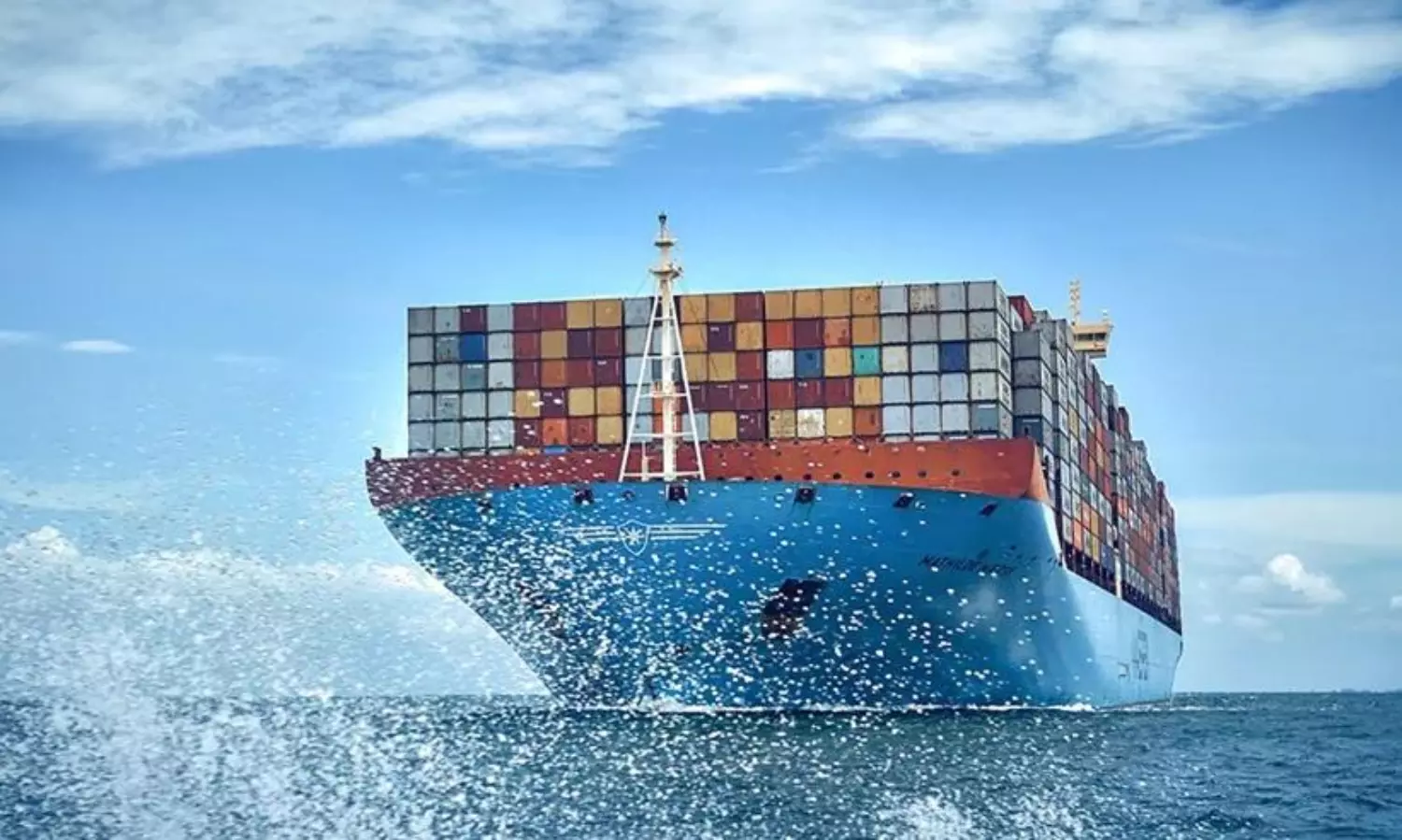Maersk pauses all Red Sea transits
Maersk Hangzhou was attacked multiple times by Houthis in the Red Sea last week

Danish carrier Maersk, the world's second largest container carrier, has decided to pause all transits through the Red Sea/Gulf of Aden till further notice.
Maersk Hangzhou was attacked multiple times by Houthis in the Red Sea last week, and the U.S. Navy had shot down three small boats killing all rebels on the boats.
"An investigation into the incident is ongoing and we will continue to pause all cargo movement through the area while we further assess the constantly evolving situation,” says an official statement from Maersk. “In cases where it makes most sense for our customers, vessels will be rerouted and continue their journey around the Cape of Good Hope. This decision has been taken to assure the safety of our seafarers and cargo on our vessels, which is our utmost priority."
More attacks by Houthis
The latest update from the U.S. Central Command says: "On Jan. 2, at approximately 9:30 p.m. (Sanaa time), Iranian-backed Houthis fired two anti-ship ballistic missiles from Houthi-controlled areas in Yemen into the Southern Red Sea. Multiple commercial ships in the area reported the impact of the ASBMs into the surrounding water though none have reported any damage. These illegal actions endangered the lives of dozens of innocent mariners and continue to disrupt the free flow of international commerce. This is the 24th attack against merchant shipping in the Southern Red Sea since Nov. 19."
Hapag, MSC re-routes sailings
German carrier Hapag-Lloyd, in its latest update, said it will avoid the Suez Canal and the Red Sea "with immediate effect, and instead route our ships around the Cape of Good Hope."
"We're counting 252 vessels now gone or going around Africa. MSC tops the list with 45 operated vessels, followed by Maersk at 37," says eeSea in its latest LinkedIn update.
Rates continue to zoom
Spot freight rates from the Far East to the Mediterranean Sea have all but doubled since the dramatic weekend by mid-December, says Peter Sand, Chief Analyst, Xeneta.
"We expect that rates will keep rising as long as the transits through this vital choke point though the Red Sea and Bab el-Mandeb Strait isn't fully free and safe for international maritime transports.
"On the horizon we have the Chinese Lunar New Year, a classical container shipping mini-peak season. Carriers have announced sizable surcharges for this already on top of many other cost-recovering initiatives in the most recent two weeks. Global shippers must try their utmost to manage all of these risks."
Lars Jensen says in his latest update: "I have mentioned this before but worth repeating for shippers: The position taken by carriers regarding Red Sea transits mainly applies to vessels they themselves operate. If you book with a specific carrier and have a preference for a specific routing you need to look into who is operating the vessel on that specific sailing."


